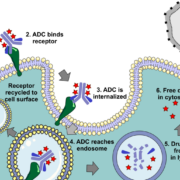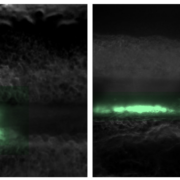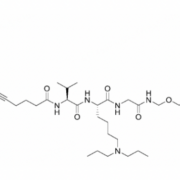Swedish antimicrobial specialist Amferia AB has inked a contract is with the Swiss animal health company Biokema SA for commercialisation of Amferia’s proprietary antimicrobial wound care technology in Switzerland.
ADVERTISEMENT
The extent to which vested interests can delay innovation can currently be seen in the introduction of screening for the dominantly inherited disease familial hypercholesterolaemia, the benefits of which have already been proven in the UK and the Netherlands.
A brand-new AI analysis of 1,500 climate policies across 41 countries between 1998 and 2022 reveals that only 4% achieved significant emission reductions.
Swiss mitophagy specialist Vandria SA has booted its CHF18m Series A financing from December 2023 by further CHF10.3m to push its lead VNA-318 to Phase Ib testing.
Danish ADC maker Adcendo ApS has licenced the rights to commercialise Multitude Therapeutics Inc’s first-in-class ADCE-T02 globally except the Greater China region.
German biotech spin-out Emfret Analytics GmbH & Co. KG has presented a first in class anticoagulant that helps preventing heart attacks and stroke while showing less adverse effects than approved meds.
Good news for BioNTech SE: The safety study of the ADC BNT326/YL202 developed by MediLink Therapeutics, which was suspended by the FDA in mid-June, will continue.
Danish vaccine maker Bavarian Nordic A/S has submitted data to the EMA that support label extension of its mpox vaccine imvanex indication to include adolescents 12 to 17 years of age.
After the drug discovery specialist Evotec SE lowered its annual forecast and lost almost 75% of its market capitalisation in just eight months, the new CEO, Christian Wojczewski, is taking action and closing non-profitable areas.
Investigating substrate selectivity of nitrogenase enzymes in phototrophic R. capsulatus bacteria, German microbiologist have found one converting CO2 to formiate and methane opening the way to fossil oil-free hydrocarbon synthesis


 Amiferia AB
Amiferia AB Veronika Sanin
Veronika Sanin pixabay.com/SD-Pictures
pixabay.com/SD-Pictures Biopôle SA
Biopôle SA Adcendo ApS
Adcendo ApS Stefan Navarro, Experimental Biomedicine I / University Hospital Würzburg, Germany
Stefan Navarro, Experimental Biomedicine I / University Hospital Würzburg, Germany Medilink Therapeutics
Medilink Therapeutics Bavarian Nordic A/S
Bavarian Nordic A/S
 Max Planck Institute for Terrestrial Microbiology/Geisel
Max Planck Institute for Terrestrial Microbiology/Geisel